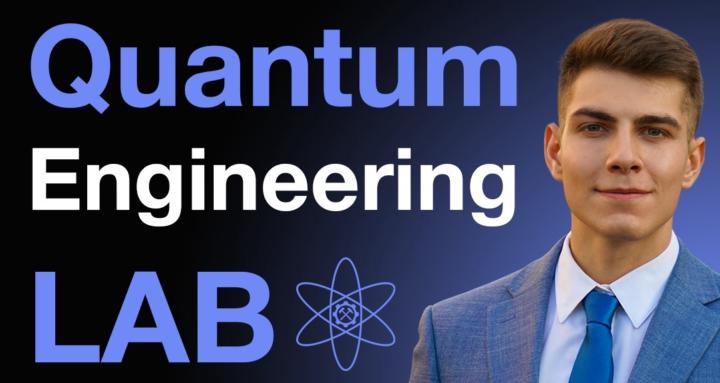Sep 11 • ⚛️General discussion
Job Analysis: Microwave Design Engineer
Many aspiring quantum engineers believe they need a deep background in quantum theory to be competitive. However, a close analysis of this industry job reveals a different, more practical entry point.
This IBM Quantum role for a Microwave Design Engineer serves as a clear case study for a skills-first approach to building a career in quantum hardware. Let's deconstruct the core requirements.
⚛️ Foundation: Core Engineering Expertise
The primary requirements for this role are not in quantum mechanics, but in classical electrical engineering. The job posting lists the following as required technical expertise:
- Demonstrated RF/microwave filter design knowledge (notch filters, bandpass filters, diplexers).
- Mastery of EM modeling, circuit design, and layout tools such as Keysight ADS, Ansys HFSS, and Cadence.
- Familiarity with test equipment, specifically vector network analyzers (VNAs).
The immediate takeaway is that a deep, practical foundation in a traditional engineering discipline is the most critical asset. Expertise in industry-standard simulation software and hands-on lab experience with relevant test equipment are non-negotiable prerequisites. This is the bedrock upon which a quantum career is built.
⚛️ Application: Layering on Relevant Quantum Knowledge
The "quantum" aspect of the role is positioned as an application of the core engineering skills. Critically, the job description states that experience with "superconducting circuits, is desirable but not required."
This detail is significant. It implies that companies are willing to invest in teaching the specific quantum context to a candidate who already possesses a strong, classical engineering skill set.
The effective strategy is not to learn all of quantum physics, but to learn the sub-field relevant to your engineering foundation. For an RF/microwave engineer, this means focusing on topics like:
- Superconducting circuits and resonators
- Quantum-limited parametric amplifiers (e.g., TWPAs)
- Josephson junction devices
This approach allows you to build a specialized niche by applying your core competency to quantum systems, making you a far more valuable candidate than a generalist with only basic theoretical knowledge.
⚛️ The Force Multiplier: Technical Communication
Beyond technical skills, the job description explicitly calls for a "team player with strong writing and presentation skills, who is able to create and communicate technical ideas."
In a complex, multi-disciplinary field like quantum computing, the ability to communicate your work clearly is not a soft skill—it is a force multiplier for your technical impact. Your work’s value is limited by your ability to explain it to your colleagues, collaborate effectively, and present your findings. This skill is a key differentiator for career progression.
⚛️ A Practical Roadmap
Based on this analysis, a pragmatic roadmap for an aspiring quantum engineer emerges:
- Master a Core Engineering Discipline: Develop deep, demonstrable expertise in a field like RF/microwave engineering.
- Gain Proficiency with Industry Tools: Become an expert user of the simulation software (ADS, HFSS, COMSOL) and laboratory hardware (VNAs, spectrum analyzers) essential to your chosen discipline.
- Apply Your Skills to Quantum Systems: Seek out research or projects where you can apply your core skills to a quantum-specific problem. Simulate a superconducting resonator or design a control sequence on an FPGA.
- Practice Clear Technical Communication: Actively work on presenting your projects, writing clear documentation, and collaborating within a team.
This methodology prioritizes building tangible, transferable skills first, then strategically applying them to the quantum domain. It is a more reliable and direct path to becoming a valued contributor in the field.
What do you guys think? How does this align with the curriculum and focus of your academic program? Do you see a disconnect between what industry wants and what academia teaches?
7
3 comments
powered by

skool.com/quantum-computing-career-lab-6278
For people who want to build careers in Quantum Engineering⚛️
Get mentorship from an IBM Quantum Engineer and build your personal Quantum Roadmap 🗺️
Suggested communities
Powered by
